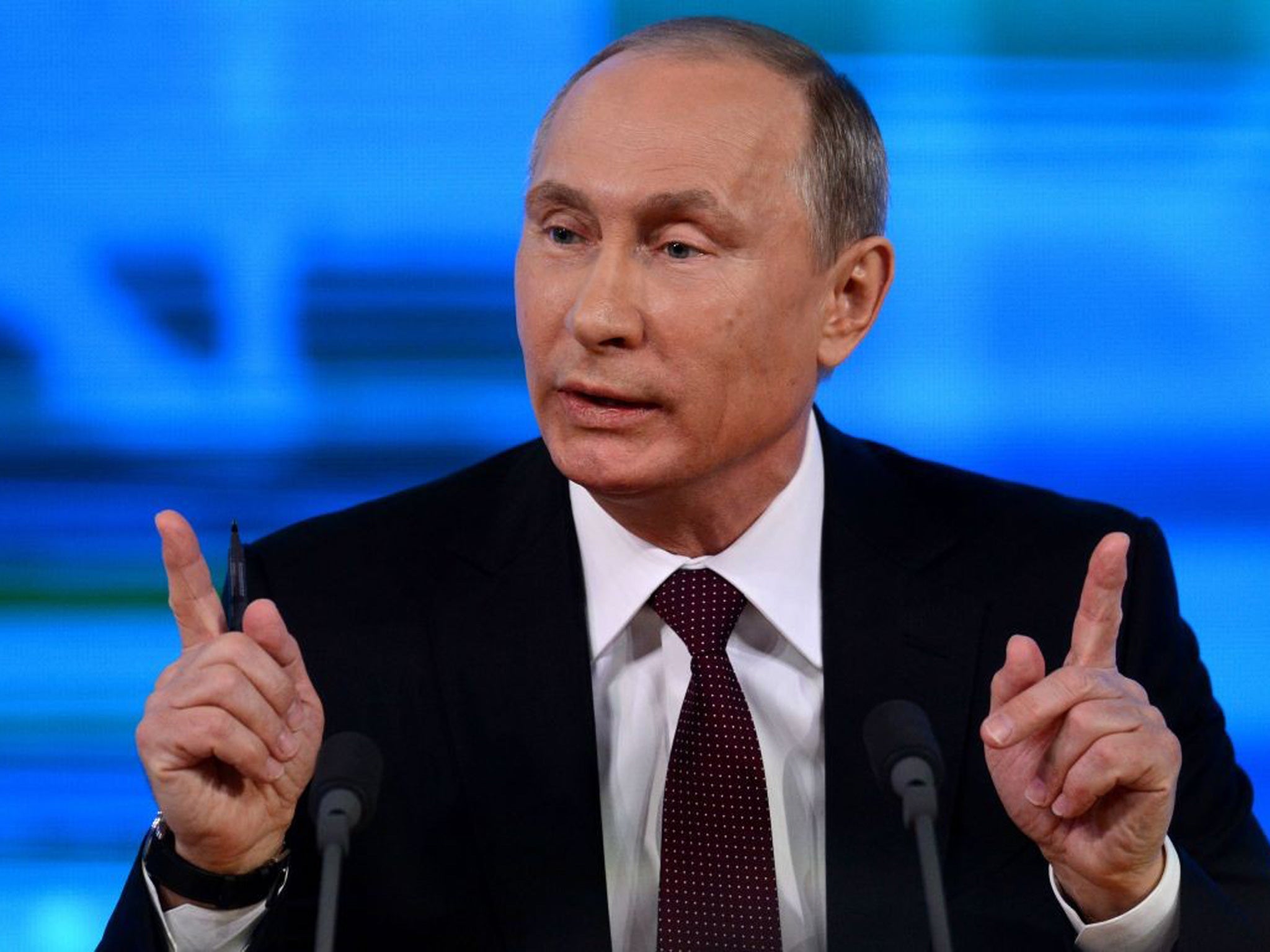President Putin backs NSA surveillance as 'necessary' to fight terrorism
But government needs to 'limit appetite' of agency with clear ground rules

Your support helps us to tell the story
From reproductive rights to climate change to Big Tech, The Independent is on the ground when the story is developing. Whether it's investigating the financials of Elon Musk's pro-Trump PAC or producing our latest documentary, 'The A Word', which shines a light on the American women fighting for reproductive rights, we know how important it is to parse out the facts from the messaging.
At such a critical moment in US history, we need reporters on the ground. Your donation allows us to keep sending journalists to speak to both sides of the story.
The Independent is trusted by Americans across the entire political spectrum. And unlike many other quality news outlets, we choose not to lock Americans out of our reporting and analysis with paywalls. We believe quality journalism should be available to everyone, paid for by those who can afford it.
Your support makes all the difference.President Vladimir Putin has spoken in defence of the National Security Agency, arguing surveillance is necessary to deter terrorism, but said the government needs to "limit the appetite" of the agency by establishing clear ground rules.
The comments he made at a major news conference suggested a surprising show of support for President Barack Obama's administration, after executives from the world's biggest technology firms such as Google, Apple and Twitter called on the US for aggressive reforms of their electronic surveillance operations.
In November, US Secretary of State John Kerry said he would work with US President Barack Obama to ensure there would be no further "inappropriate" work carried out by the NSA following worldwide criticism and allegations German Chancellor Angela Merkel's phone was spied on.
Putin, a 16-year KGB veteran and the former chief of Russia's main espionage agency, said that while the NSA program "isn't a cause for joy, it's not a cause for repentance either" because it is needed to fight terrorism.
He argued that it is necessary to monitor large numbers of people in order to expose terrorist contacts.
But he added: "On political level, it's necessary to limit the appetite of special services with certain rules."
Putin said the efficiency of the effort — and its damage to privacy — is limited by the sheer inability to process such a huge amount of data.
Asked about former NSA contractor Edward Snowden, whom Russia has granted asylum, Putin insisted that Moscow is not controlling him.
He argued that any revelations published by Mr Snowden must have come from materials he provided before landing in Russia, stressing again that Moscow made providing refuge to Snowden conditional on him not carrying out any further "anti-American" activities.
Putin said he has not met with Mr Snowden and insists that Russian security agencies have not worked with him or asked him for any information relating to NSA activities against Russia. Mr Snowden found IT-related work in October in Russia.
Putin dismissed a report claiming that Moscow stationed its state-of-the art Iskander missiles in its Kaliningrad exclave region that borders Nato and EU members Poland and Lithuania, but added that he considers such a move a possible way of countering the US led missile defense system in Europe.
Both Poland and Lithuania have expressed concern about such a possibility, and Washington warned Moscow against making destabilizing moves.
Putin said Russia has long considered it, but added that "we haven't made the decision yet" on deploying them.
Turning to Ukraine, Putin insisted that Russia's bailout of the economically struggling country was driven by a desire to help a partner in dire straits and wasn't linked to its talks with the European Union.
Putin said that Russia decided to buy $15 billion worth of Ukrainian securities and slash the price for Russian natural gas shipments to Ukraine to help a "brotherly" nation.
He added that the move is driven in part by pragmatic considerations, as Ukraine has been an important customer for Russian gas and a key partner in industrial cooperation since Soviet times.
The Kremlin's move comes as Ukrainian President Viktor Yanukovych faces massive street protests over his decision to spike a pact with the EU in favour of closer ties with Russia.
Additional reporting by Associated Press
Join our commenting forum
Join thought-provoking conversations, follow other Independent readers and see their replies
Comments